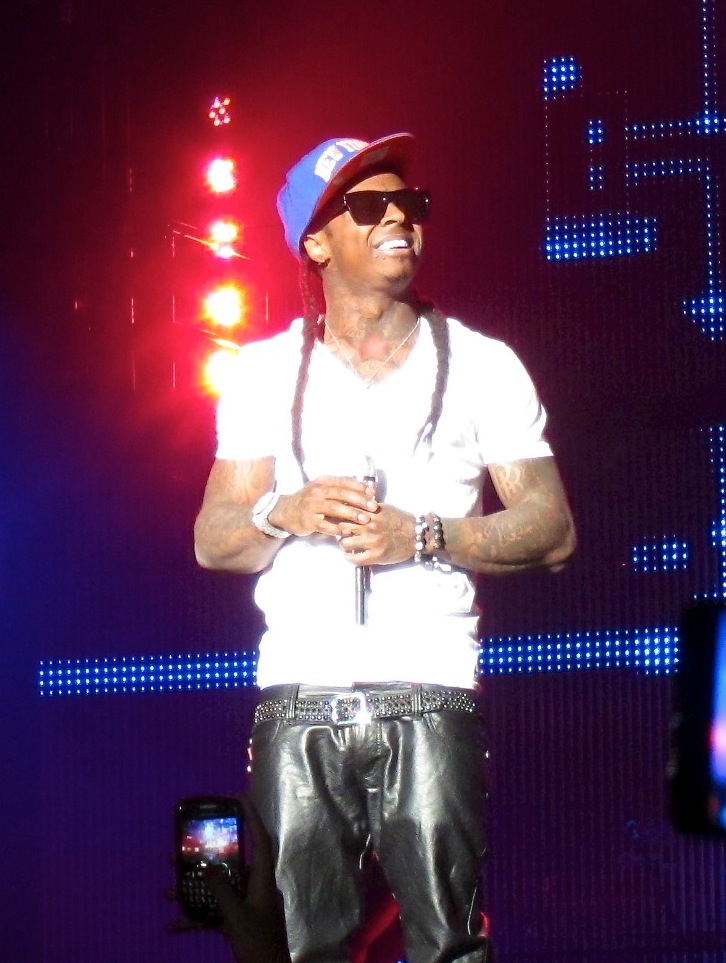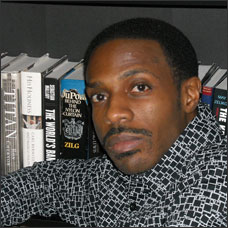 Just read this article by Dr Boyce called ‘BET Has Officially Become the New and Improved KKK‘..The title is no doubt provacative and so when I peeped it, I just knew he was gonna go in BET executives and raise the level of conversation.
Just read this article by Dr Boyce called ‘BET Has Officially Become the New and Improved KKK‘..The title is no doubt provacative and so when I peeped it, I just knew he was gonna go in BET executives and raise the level of conversation.
I gotta say I was disappointed.. The article focused on Lil Wayne and his lyrics and how he had gotten the most BET Award nominations of any artist. There was no mention of the key decision makers.
I was even more disappointed when I peeped the follow up video where Boyce attempts to explain in more detail why he took shots at Lil Wayne and that he much he loves Hip Hop.
Its not that Boyce was incorrect in taking Wayne to task for some of his more unsavory lyrics. Artist are not immune to criticism and being challenged. But lets be honest, that happens all day everyday. People buy the albums, listen to the songs and express their opinions.. It was dope. It was wack. It gets 5 stars, 4 stars, 3 stars..
 There’s an abundance of websites and blogs that put out album reviews. Lil Wayne routinely gets smashed on. He routinely gets praised.
There’s an abundance of websites and blogs that put out album reviews. Lil Wayne routinely gets smashed on. He routinely gets praised.
There are also scores of radio shows where folks routinely weigh in on the merits of a particular artist. Conversations around Lil Wayne are not uncommon.
My point here is this…if Lil Wayne who Dr Boyce says he likes and listens to everyday, needed to be publicly checked for his off color lyrical content, there was ample opportunity to do so..Dr Boyce didn’t have to wait for the BET awards to come down on him..
I feel Dr Boyce missed the mark by not calling to task and specifically holding accountable the ‘KKK-like actions and decision making of BET senior executives like Debra Lee, Scott Mills, Stephen Hill etc….Why not make them household names and encourage folks to push for them to change their ways?
We should know the names and numbers of anyone who’s actions are on par with the ultimate goals of the KKK which is to destroy and forever eradicate Black people. (Folks can peep the list of executives who runs BET on their ‘media room fact sheet’ HERE ).
 Forget Lil Wayne for a minute.. Let’s find out why BET president Debra Lee (pictured left) allowed Lil Wayne the platform? What was her decision making process? Who did she have sit around the table and weigh in on the production of the show? Are their standards that would lead to an artists not being given the exposure on BET? For example, If Lil Wayne was an avowed child molester would he have been honored or would he have been shunned?
Forget Lil Wayne for a minute.. Let’s find out why BET president Debra Lee (pictured left) allowed Lil Wayne the platform? What was her decision making process? Who did she have sit around the table and weigh in on the production of the show? Are their standards that would lead to an artists not being given the exposure on BET? For example, If Lil Wayne was an avowed child molester would he have been honored or would he have been shunned?
Dr Boyce noted that he called out Lil Wayne because of the tremendous influence he has on young minds. That’s understandable..At the same time we have to note that Lee and her staff also allowed singer Chris Brown to perform. The man who made headlines for viciously beating his ex-girlfriend Rhiana also has influence….We saw Busta Rhymes performing and he’s been arrested in past for assault.
By granting these artists a worldwide audience are equally harmful messages being sent? But really the lesson that all of us need to know both young and old alike, is the how corporate power works and its relationship to Lil Wayne, BET and larger Black community?
Hence we need to discuss whether or not an artist like Lil Wayne is yielding so much power and clout that he can show up at the BET offices and force Debra Lee (pictured left) or show producer Stephan Hill to put him on the air?
 We should be asking does the buck stop with Debra Lee and her staff or does she have to answer to Viacom executives like Sumner Redstone (pictured right) and Phillipe Dauman who own BET? Did they call her up and force BET to grant Lil Wayne a platform? In short who was really calling the shots and what do we as consumers do about this?
We should be asking does the buck stop with Debra Lee and her staff or does she have to answer to Viacom executives like Sumner Redstone (pictured right) and Phillipe Dauman who own BET? Did they call her up and force BET to grant Lil Wayne a platform? In short who was really calling the shots and what do we as consumers do about this?
(You can peep the executives at Viacom which is home to VH1 and MTV over HERE . You can also peep the record setting amounts of money these Viacom executives make HERE. It’s a lot more than Lil Wayne..)
I liken the whole scenario to this.. If I was hired to babysit your kids and decided to show them x-rated movies, upon finding out my misdeeds who do you as a parent hold accountable? me the babysitter who presented the movie or the adult TV stars?
Lil Wayne put out a product which again, can and should be challenged but that’s the easy way out.. It’s harder to but necessary to take the fight to executives at BET who for whatever reason decided to honor not only Lil Wayne, but artists who are similar in terms of having questionable product.
I feel Dr Boyce should’ve smashed directly on them and lit a fire under their feet. Don’t let them hide behind the BET logo.Name names… And yes if the price you pay is these BET executives don’t ever invite you back on their shows.. so be it.. No one said speaking truth to power is easy..
Something top Ponder
-Davey D-




